DUNE: My Favorite Sci Fi Novel And Now Favorite Sci Fi Movie Series And Here’s Why…
Ladies, gentlemen, and spice addicts, welcome to Dune—the franchise where sand gets everywhere, giant worms are worshipped like rockstars, and water is basically Bitcoin. Now, before we dive into this sandy fever dream, let me hit you with the obvious: Yes, Zendaya is finally in Dune: Part Two for more than 15 seconds. And yes, Timothée Chalamet is still serving ‘desert messiah but make it emo’ energy.
Let’s start with Paul Atreides. Our boy didn’t ask to be Space Jesus, okay? But destiny, a creepy sister in the making, and a mother who’s basically a Jedi with better fashion sense said, ‘Congrats, you’re the Chosen One. Checkmate biatchhh!’ And speaking of Lady Jessica—ma’am, you really went full chopper mom but with witchcraft. Props to you, though, for consistently looking as hot as you are while committing light political manipulation and child trauma.
Then we’ve got the Bene Gesserit, aka Space Nuns Who Play 4D Chess. These ladies have been pulling strings in the universe longer than your grandma’s been crocheting doilies. And who can forget the Harkonnens? If you thought Voldemort had bad vibes, let me introduce you to Baron Harkonnen—a floating Jabba the Hutt cosplayer who decided ‘oppression’ is his gay love language.
Oh, and the Fremen. If Paul’s emo angst had a fan club, they’d be running it. But honestly, respect to the Fremen—desert survivalists who casually ride building-sized worms like they’re in an extreme sports commercial. Also, shoutout to Stilgar, the ‘I didn’t sign up for this messiah nonsense but here we are’ king.
Look, Dune isn’t just a movie series; it’s a political, ecological, and emotional rollercoaster where every decision feels like it was written by a philosophy major on three Red Bulls. And if you’re not hyped about Dune Messiah yet, just know Paul’s journey only gets darker, messier, and somehow even more sand-covered.
So, my desert-wandering spice fiends, buckle up, sip your recycled sweat water, and get ready for existential dread, breathtaking cinematography, and Timothée looking into the distance like he’s listening to sad indie music in his head. Catch a support chair or something, for this Reaper is going to change tones and sing you poetry.
Dune: A Universe Shaped By Sand, Power And Prophecy
Dune: Part One (2021) and Dune: Part Two (2024), directed by Denis Villeneuve, have become monumental adaptations of Frank Herbert’s legendary sci-fi epic. With sweeping desert landscapes, intricate political intrigue, and haunting visions of destiny, these films have solidified themselves as modern cinematic masterpieces.
At the heart of this sprawling narrative lies Paul Atreides, a reluctant hero, a prophesied messiah, and ultimately, a tragic figure shaped by forces far beyond his control. THERE WILL BE SPOILERS AHEAD. HENCE, YOU’VE BEEN WARNED!
The Journey So Far
Released in October 2021, Dune: Part One introduces us to House Atreides, led by Duke Leto Atreides. The emperor grants them control over the desert planet Arrakis, the only source of the universe’s most valuable resource, spice melange. But this is a trap—House Harkonnen, the previous rulers of Arrakis, are plotting revenge with imperial backing. Amidst betrayal and bloodshed, Paul Atreides and his mother, Lady Jessica, are forced to flee into the desert, where they encounter the native Fremen. Paul begins to experience prophetic visions hinting at a greater purpose and a terrible fate.
In March 2024, Dune: Part Two continues the story. Paul embraces his role among the Fremen while grappling with the weight of his prophetic destiny. Through alliances, love, and ruthless determination, Paul rises as the messianic figure Muad’Dib. The film concludes with Paul seizing power through revolution, cementing his position as both a savior and a harbinger of chaos.
Paul Atreides: The Reluctant Messiah
Paul Atreides is not your archetypal hero. He’s not driven by honor, glory, or vengeance; rather, he’s haunted by visions of a path that leads to destruction. From the moment he places his hand into the pain-inducing box of the Reverend Mother Gaius Helen Mohiam, we see his struggle—pain, fear, and the heavy burden of expectation.
“Fear is the mind-killer. Fear is the little death that brings total obliteration.”
Paul’s transformation into the Fremen messiah isn’t merely a tale of valor—it’s one of survival, exploitation, and inevitability.

Paul’s Relationships: Threads of Destiny
- Duke Leto Atreides: Paul’s father, Duke Leto, was a leader bound by honor and pragmatism. In his final moments, Leto sacrifices himself to try and eliminate Baron Vladimir Harkonnen. The scene where Leto speaks to Paul before their fateful arrival on Arrakis carries a quiet weight:
“A great man doesn’t seek to lead. He’s called to it.”
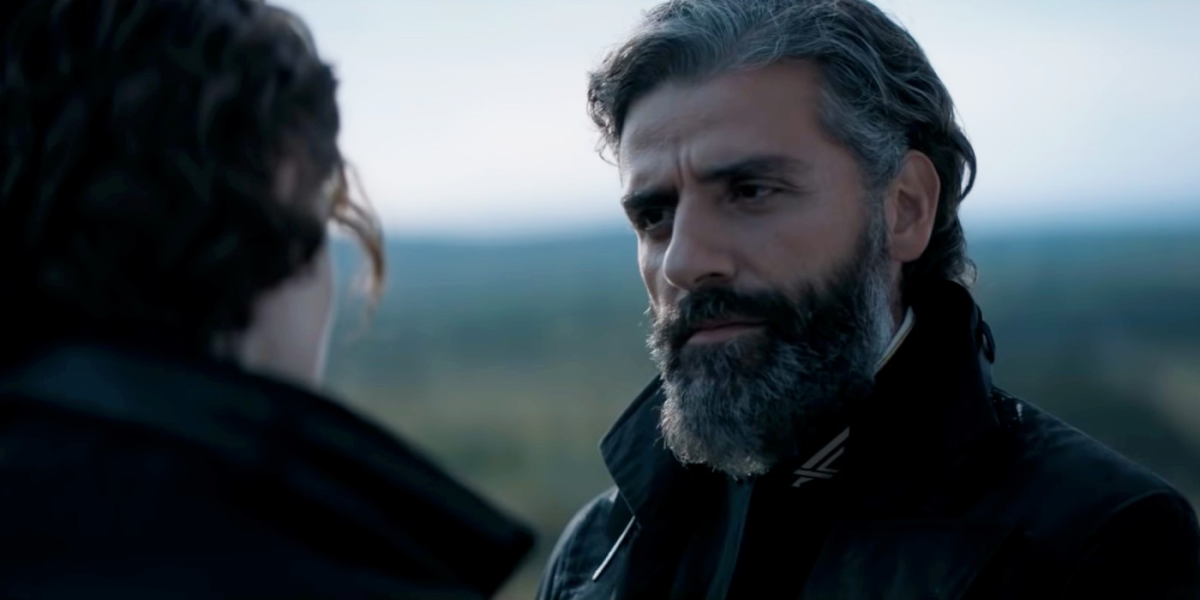
- Lady Jessica: As a member of the Bene Gesserit, Lady Jessica’s love for Duke Leto and her decision to give birth to a son (Paul) instead of a daughter went against the plans of her order. Her relationship with Paul is fraught with complexity—a balance between maternal love and political estimation.
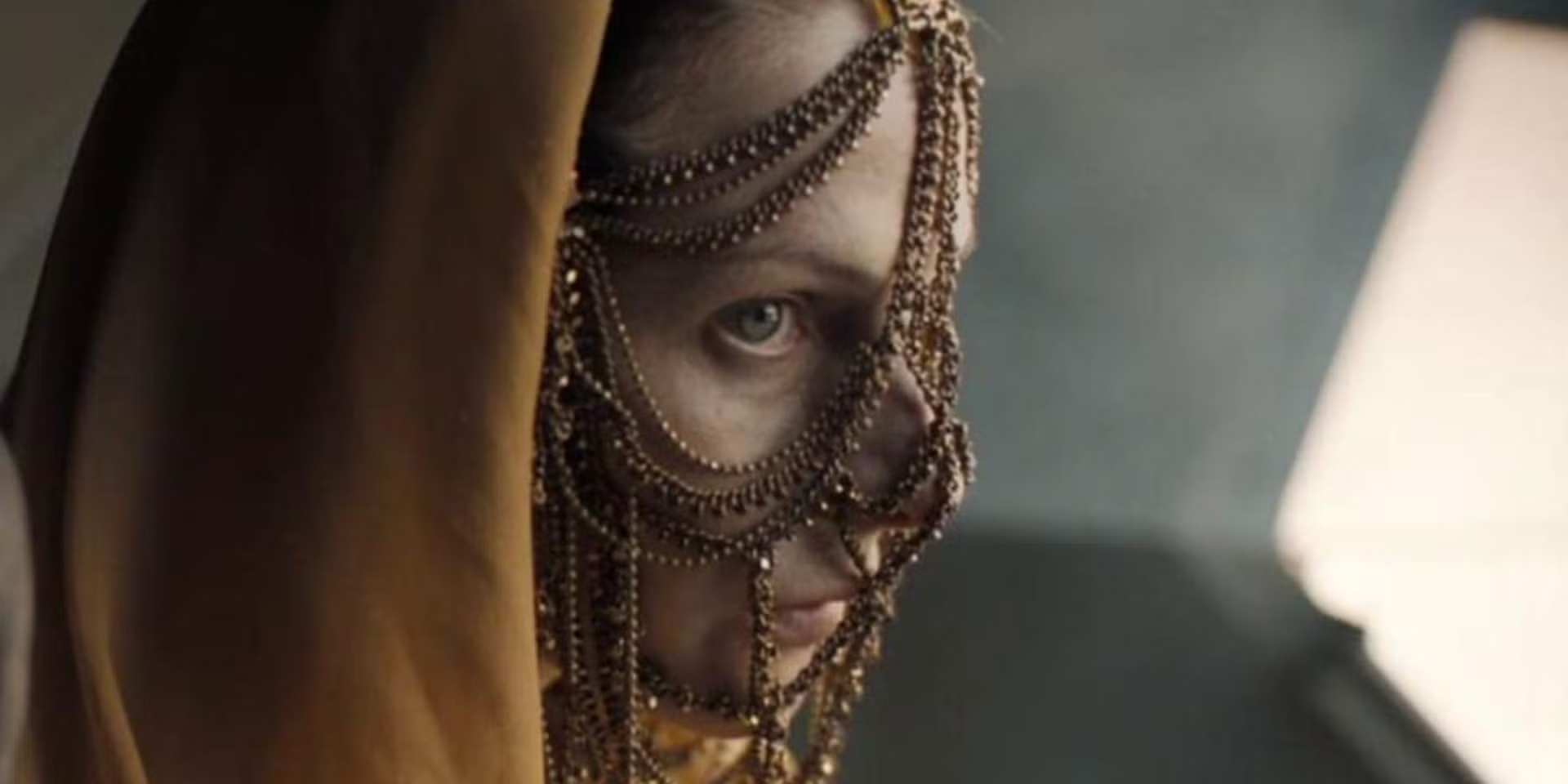
- Chani: Chani represents hope and humanity for Paul. In Part Two, their bond grows deeply profound, yet it’s overshadowed by the grim reality of Paul’s visions. Chani’s line, “This is only the beginning,” after Paul embraces his destiny, encapsulates their bittersweet relationship.

- Stilgar: Stilgar is both a mentor and a follower. Paul earns Stilgar’s approval not through might but through appreciation of the Fremen culture. Their relationship highlights Paul’s growing influence and manipulation of prophecy.
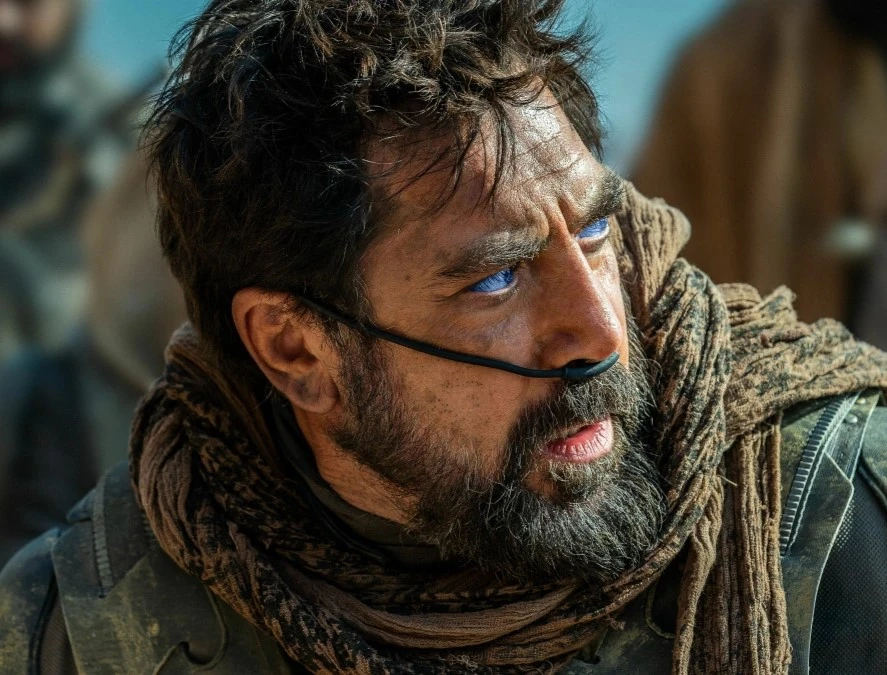
Paul’s dreams serve as both a grace and a curse. In one vision, he sees his path leading to a holy war spreading across the universe in his name—a future he desperately wants to avoid but feels powerless to prevent.
The Bene Gesserit: Strings Of Control
The Bene Gesserit are a sisterhood of highly trained individuals, wielding political influence and unfathomable abilities like the Voice, which allows them to command others. They manipulate bloodlines, playing a centuries-long game to create the Kwisatz Haderach, a being with the power to bridge space and time.
Lady Jessica’s defiance in bearing a son instead of a daughter disrupts their plans. Paul becomes an ace in the hole—neither fully controllable nor predictable. The Bene Gesserit’s role in shaping the events of Dune cannot be overstated—they are the hidden hands behind the throne.
“The mystery of life isn’t a problem to solve, but a reality to experience.”
Their order serves as both shepherds and deceivers, guiding humanity while binding it in chains of prophecy and fear.
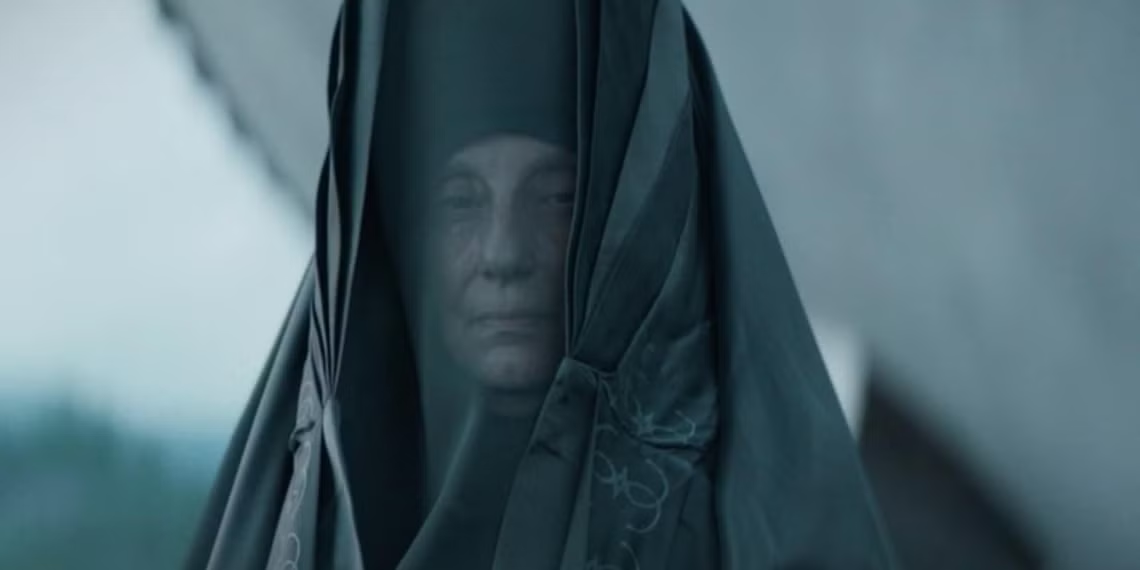
The Harkonnens: Draughtsmen Of Destruction
House Harkonnen, led by the grotesque Baron Vladimir Harkonnen, serves as the primary antagonist. Their greed, brutality, and cunning drive much of the conflict in Dune.
- Baron Vladimir Harkonnen: A figure of excess and cruelty, the Baron sees Arrakis not as a sacred planet but as a resource to exploit.
- Glossu Rabban: The violent enforcer, Rabban’s rule over Arrakis is marked by fear and oppression.
- Feyd-Rautha: A charismatic yet dangerous figure, Feyd is set up as a dark mirror to Paul.
The Harkonnens represent unchecked power and greed, but they are also victims of their ambition—a self-destructive force that ultimately leads to their downfall.
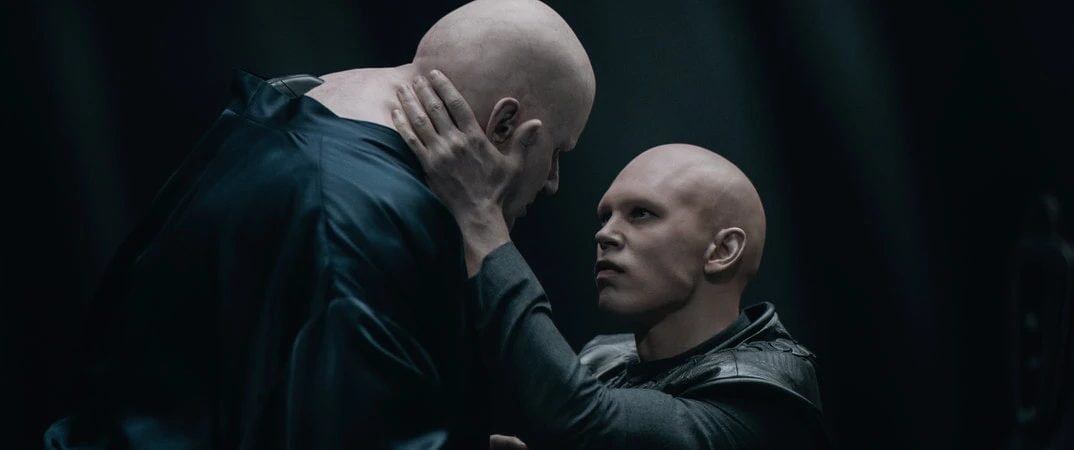
The Fremen And The Shai–Hulud: The Inhabitants Of Arrakis
The Fremen, Arrakis’ native inhabitants, are warriors shaped by hardship and faith. Their survival depends on understanding the desert’s harsh rules, including the sandworms, colossal creatures that guard the spice, and mastering the sandwalk.
- The Water of Life: A deadly poison that only a true Kwisatz Haderach can survive.
- Desert Culture: Water is sacred, life is communal, and their belief in prophecy makes them both vulnerable and powerful.
Paul exploits the Fremen’s prophecies to cement his role as Lisan al Gaib—their messiah. Yet, even he recognizes the dangers of wielding such faith.
“He who controls the spice, controls the universe.”
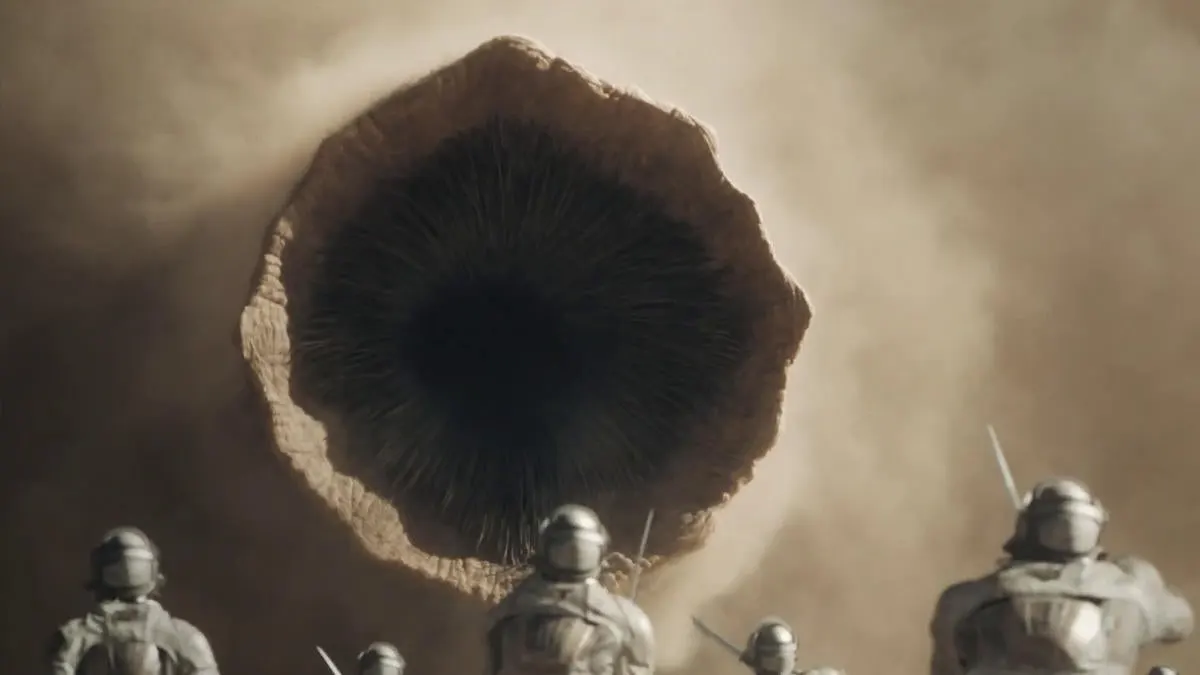
Foreseeing The Future: Dune Messiah
In Dune Messiah, Paul’s reign brings not peace, but destruction. His prescience becomes a curse, and his choices lead to unimaginable consequences.
Denis Villeneuve has hinted that Dune Messiah will delve into the consequences of Paul’s actions. Changes from the books are inevitable, but if Villeneuve’s track record is any indication, they’ll serve the story’s core themes.
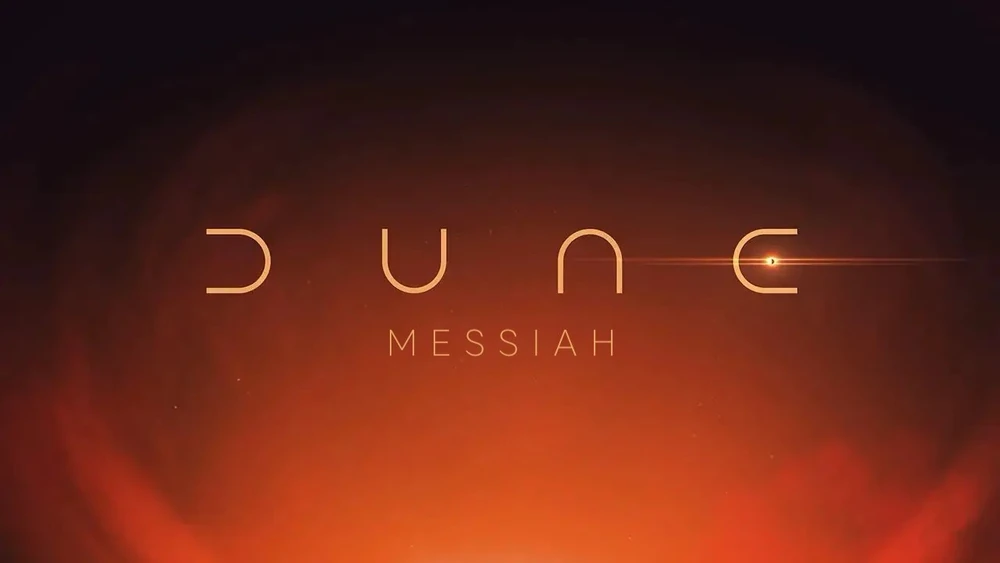
Themes: Socio–political And Religious Warfare
At its core, Dune is about the danger of charismatic leaders, the power of religion as a tool for control, and how political systems perpetuate cycles of violence.
Paul isn’t a hero—he’s a necessity. The Golden Path isn’t about glory; it’s about survival. His sacrifice is inevitable, and his victories are stained with the blood of countless innocents.
“The spice must flow.”
A Universe Of Consequences
Dune isn’t just a sci-fi epic; it’s a reflection of humanity’s history and future. Through Paul, we see the weight of destiny, the cost of leadership, and the fine line between savior and tyrant.
In the sands of Arrakis, history is written in blood and whispered through prophecy.
“He who can destroy a thing, controls a thing.”
Do you detest Paul’s ways, or do you think you would’ve done the same thing if you were in his place? Do you think there should be more adaptations of similar sci fi literature, and Dune just might be the breakthrough point? Do you like Denis as a director? What do you like about his direction and storytelling? Do you think Dune is his best movie? Do you want us to make more sci fi movie reviews? COMMENT YOUR THOUGHTS DOWN!

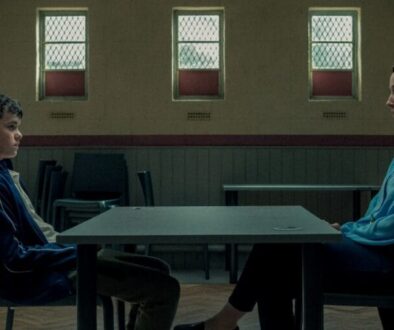
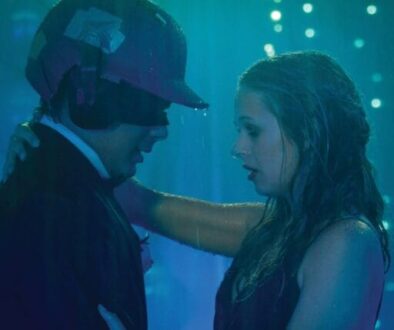
![20250325_223818-COLLAGE[1] 20250325_223818-COLLAGE[1]](https://geerdyverse.com/wp-content/uploads/2025/03/20250325_223818-COLLAGE1-1024x769-394x330.jpg)
Oscars 2025: Biggest Winners, Shocking Moments, and Highlights You Need to Know - Ge-erdy verse
March 4, 2025 @ 4:50 pm
[…] keep things interesting. And let’s not forget that musical number featuring a sandworm from Dune—because nothing says “Welcome to the Oscars” like a giant, phallic desert […]